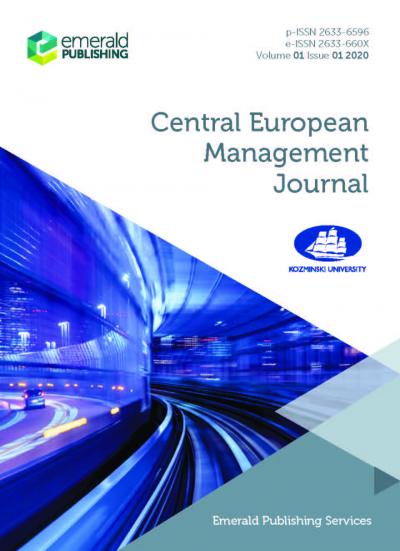The Role of Internship and Business Incubation Programs in Forming Entrepreneurial Intentions: an Empirical Analysis from Pakistan
Aneeqa Zreen
Limkokwing University of Creative Technology
Muhammad Farrukh
Limkokwing University of Creative Technology
Nida Nazar
Cyberjaya University College of Medical Sciences
Rimsha Khalid
Limkokwing University of Creative Technology
2019 27 (2) Central European Management Journal
DOI 10.7206/jmba.ce.2450-7814.255








